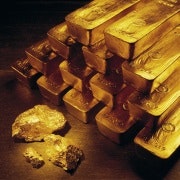ASHES: Rogers proves his mettle
Chris Rogers is a patient man. On the verge of his debut Test hundred, Graeme Swann sent down no fewer than 20 dot balls. Rogers, stuck on 96, let his nerves show; two leading edges fell just short of a fielder, and twice he played and narrowly missed. In the pavilion Michael Clarke had his head in his hands unable to look but Rogers waited until Swann bowled one on middle and leg and he found room at last to sweep to the square leg boundary. He is just 21 days short of his 36thbirthday and in only his fifth Test match he had become the second oldest player to make his first hundred for his country, the first being in the 19th century.
So far, this had been a match saving innings. Australia were 76 for 4 shortly after lunch on a wicket that was like an adventure playground for seam bowlers. Deliveries moving late off a good length had accounted for four of the top-order batsmen before Shane Watson, coming in down the order at No 6, played a thoughtful and restrained innings. Together, they put on 129, of which Watson’s share was 68.
Since England had clearly been on top and must have expected to dismiss Australia cheaply for something under 150, Rogers has so far played a match-saving innings. But his stirring hundred means that Australia are only 16 runs behind England with five wickets standing. Their nose is just in front, and Rogers is capable of turning it into a match-winning innings.
Rogers is one of the lost generation of fine Australian batsmen who could not find places in the legendary teams captained by Taylor, Waugh and Ponting. He played in only one Test in 2008 but like many of his contemporaries, Rogers played his professional cricket in the Shield in the Australian summer and in English county cricket in the English season. He had played for four different counties before ending up in his present job as captain of Middlesex. He has recently reached 20,000 runs in first-class cricket and has made 60 centuries. He knows English conditions intimately.
That was one reason why Darren Lehmann chose him to open the innings when the squad contained other players who had been selected as Test openers but failed to make their case in the middle. His experience was the essential quality of his debut hundred. The wicket was faster than on the first day, the clouds were lower for most of the day (play ended prematurely because of bad light), and the ball was moving extravagantly off the seam, especially when Stuart Broad was bowling. He took four of the five wickets to fall for 48 off 20 overs.
But Rogers exhibited a second crucial quality: he was remarkably lucky during the torrid 21 overs before lunch, after England’s innings was terminated promptly with no addition to the overnight score of 238. His look was of fierce concentration, eyes narrowed, his lips – highlighted by the white sun cream – were pursed. Under his helmet his expressions were revealing: a grin when he played and missed, pain when he flashed unwisely outside the off stump, and a small nod of appreciation to Broad when he passed the bat three times in one over.
One astonishing over from Broad could become the subject of one of cricket’s riddles: how can a batsman be out twice and still in at the end of the over? First Broad appeared to catch Rogers plum in front of his stumps. When Umpire Hill gave Rogers not out, Broad asked for a review. The third umpire decided the ball would unquestionably have been hitting the stumps. Out surely. But no, it pitched outside the line of the leg stump. Not out.
A couple of balls later, Broad appealed for a catch behind the wicket which was given out, and this time Rogers asked for a review. The replays showed that Rogers had not hit the ball, but the third umpire wanted to see whether he might have been lbw. Hawkeye suggested that Rogers was indeed lbw, by a small margin. Out? No again. Because Broad had appealed for a catch, the umpires decreed that they could not possibly give Rogers out lbw.
But it would be churlish to emphasise the luck and ignore the grit. When he received a bad ball – and Swann obliged with three full tosses – Rogers biffed them to the boundary. He is not an especially elegant batsman but he is brave, efficient, and has the concentration required to build big innings. He took the openers role after Australia had tried Watson, Warner, Phil Hughes, and Ed Cowan. It now looks as if they will settle on Rogers and Warner, who opened the innings at Durham, for the Ashes, Part Two in Australia’s summer.
Cricket is in Rogers’ genes. Chris’s father, John, played briefly for New South Wales and was notable for the fact that he was short-sighted and colour blind. Chris wears glasses in the field, but there is nothing wrong with his judgement of line and length at the crease. He had spoiled England’s day, but the crowd appeared pleased for him. His colleagues in the dressing room even more so. And Rogers, 101 not out, will appreciate that patience has been a great virtue.
















